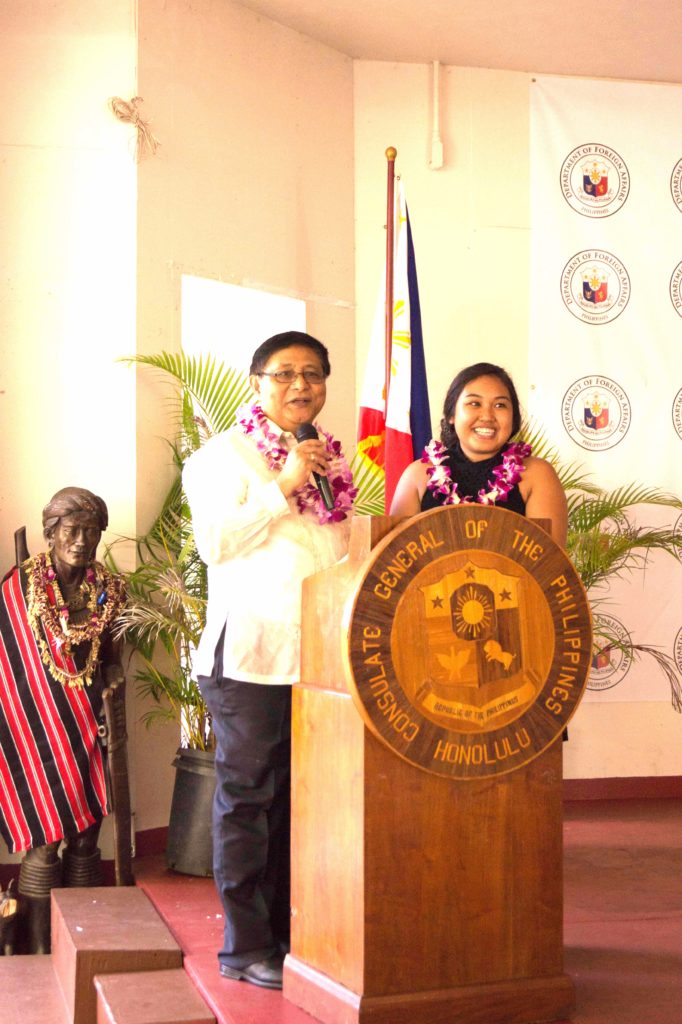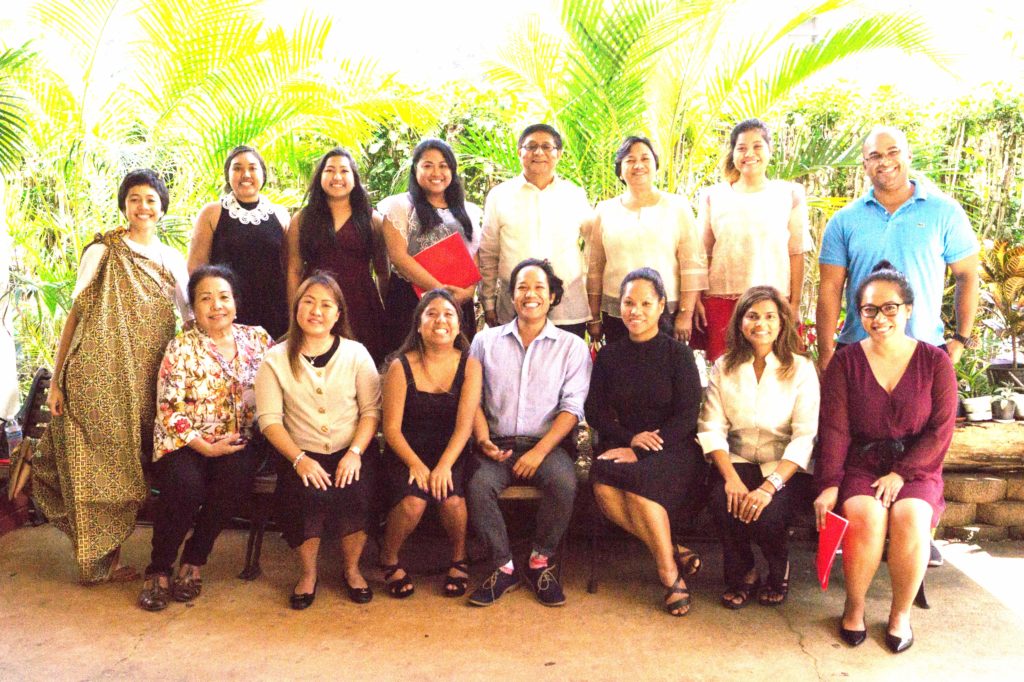Hawaii university students reclaim roots by learning Ilokano
HONOLULU — When former General Consul Gina Jamoralin was assigned to work in Hawaii, she noticed how Filipinos behaved and thought about their identities, their connection to their culture and language as well as their status and experiences as Filipinos. These observations seemed different from those she had made in other parts of the world. She concluded that it was due to the big number of Filipinos living in Hawaii who came from the Ilocos region in the Philippines.
Realizing this, Jamoralin created a program aimed at the younger generations to learn about their Filipino language and culture, in the hope that it would instill a sense of pride and empower the community.
After starting the iLAING or Ilokano Language Acquisition and Immersion for the New Generation program in 2015, Jamoralin gained the support of local organizations and companies; they provide scholarship opportunities for students between the ages of 18-26 to be in an immersion trip to the Philippines upon finishing the language classroom portion of the program.
Saturday classes
As a language class for the community, iLAING took place every Saturday from 1 to 5 p.m. for about five months under the instruction of Dr. Aurelio Agcaoili, the Ilokano program coordinator at the University of Hawaii at Manoa, and his two teaching assistants, Catherine Taylan and Nadine Ortega.
The students learn vocabulary, hold conversations with one another and even sing songs in Ilokano, which they perform at their graduation event. They receive a basic understanding of the language and how it works as they also develop a bond with their classmates and teachers. They also learned about each other’s family history and genealogy.
“I think the way that Professor Agcaoili tried to structure the class is that he’s trying to teach a child the language by talking to them and trying to get them to talk back to him,” Arce explained.
A resource specialist in the early childhood education field, Arce grew up in Hawaii and began rediscovering his identity and cultural roots as an adult.
When he wanted to learn his ancestors’ language, Arce researched online for resources to learn Ilokano but did not find one except for the language program at the University of Hawaii at Manoa.
Not looking to return to school, he reached out to Ortega who then directed him to the community program at the FilCom Center.
Hard to find elsewhere
“My classmates were passionate to learn about their history and culture. They didn’t have to be there for four hours, it wasn’t a requirement but they all sacrificed their weekends to learn,” Arce shared. “This type of a program is hard to find elsewhere.”
The program has helped many individuals recognize the language that they grew up with listening to their families speak. They start remembering Ilokano words and understanding them as adults. Another student, Yvette Cudal, joined the program to reconnect with her late grandmother.
“It was a way to reconnect with her through learning the language. When I hear Ilokano, I think of her,” Cudal shared. “I already know all the Ilokano that I need to know. But later on I realized that I’m forgetting it already because I didn’t have anyone to speak the language with.”
Reclaiming pride
Cudal explained how the class helped her reclaim her pride as an Ilocano, after years of assimilating English as the language people need to know in order to survive. She felt that in America, Ilocano language got pushed away and forgotten as if people no longer needed to know it. As a staffer for legislator, Cudal said that knowing Ilokano is a great skill that anyone can put on their resume and use in their career, especially if they live in Hawaii.
Another student, Rebecca Goldschmidt, moved to Hawaii from Chicago to pursue her master’s in photography. She chose the University of Hawaii at Manoa specifically for its Ilokano program so she could learn her grandparents’ language. Professor Agcaoili suggested that she participate in iLAING.
After the students finish the language portion of the program, they get the opportunity to be in an immersion trip to the Philippines over the summer. Those who excel in the class between the ages of 18-26 receive scholarships for the trip.
“This class had largely older students and it’s nice to see how they’ve learned or attained a new level of understanding of not just the language, but also the culture and it’s been changing their lives,” said Nadine Ortega, one of the teaching assistants. “They have a thirst for learning the language and the culture and it seems to be changing other parts of their lives as well.”
A few of the students have created a GoFundMe page and also participated in a few fundraising activities to support the effort.
For a specific age group
“Because the program is geared towards a specific age group, there are some students who did not fit the specifications for the scholarship,” Ortega explained. “A bunch of them need financial assistance in order to participate in the immersion trip, so they have been fundraising.”
The immersion trip portion of the iLAING program will take place from August 3 to 14. The students will travel to the Ilocos region, immersing themselves with everything Ilocos has to offer. They will start in Candon, visiting schools, meeting government officials, viewing local art, and seeing what it’s like living there.
Different organizations and business that help in planning and supporting the program also assist in creating the students’ itinerary so that they can travel to different sites that have historical importance in Ilocos Sur and Ilocos Norte.
“I think going to the Philippines to be able to talk and hold conversations with the people and see the Philippines and experience the culture s also integral to their education,” Ortega pointed out.
Not like going to Boracay
“We get to see the different areas and towns where Filipinos in Hawaii are originally from,” Goldschmidt added. “I think this is the most important part of learning the culture. It’s not like where we’re going to Manila or Boracay and doing touristy things. Yes, we’ll be doing touristy things, but we’re also experiencing local life. They’re trying to make it a cultural exchange.”
Along with their fundraising efforts, the students hope to publish a book for their supporters as a token of their appreciation.
The book will have the students’ experiences, stories and photos. They also hope that the book will help future classes and mitigate the lack of learning materials. After the immersion trip takes place in August, the next iLAING program will begin again in October of this year.
“Even if you don’t speak Ilokano, you already know it. Your body has that knowledge inside it and so I think for us to take it back is really important,” Goldschmidt stated. “It’s a reclamation, a reclaiming of something that was taken away.”
To support the students with their trip to the Philippines and help enhance the iLAING program for its future students, go to https://www.gofundme.com/ilaing3 to donate today.



